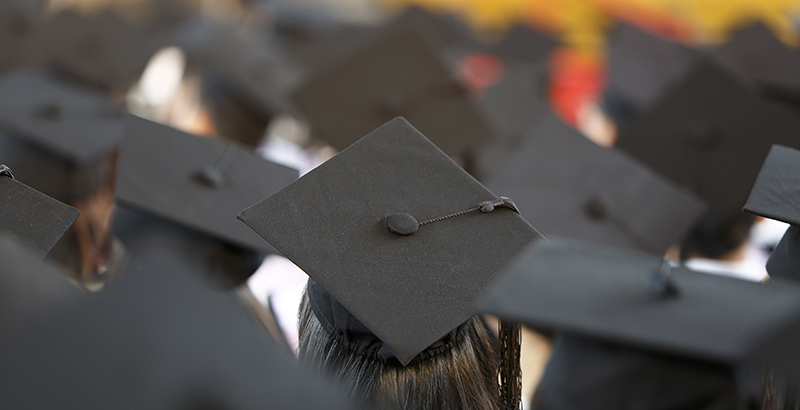Student’s Perspective: Reflections From an Online High School Valedictorian — We Are the Adults Now, and We Have to Make Our Own Futures

I was somewhat surprised, and extremely honored, to be named valedictorian of my graduating class last month. As the voice of the Arizona Virtual Academy class of 2018, I understood that I had a unique opportunity to speak to my peers and to empower an entire class of seniors who succeeded on an unconventional education path — one predicated on independence, grit, and perseverance.
Over the past several years, we’ve watched students around the country become the catalysts for change, from LGBTQ equality to anti-gun violence. I knew my classmates were among these leaders in their commitment and drive for social change.
As online students, we’ve had different experiences and unique stories. We’ve faced challenges and been given opportunities that have changed how we approach the issues facing the world.
As a transgender teenager, I found that going to a virtual school meant I never had to deal with the stares and jeers that some of my peers in traditional schools had to face. It meant never having my process of self-discovery be challenged by anyone else. It meant standing strong and pursuing my dreams, without having to hide. I realize this is a luxury, but it is a luxury that has inspired me to fight for others to have the same freedom for self-exploration.
So, as I sat down to write my valedictory speech, I considered that impact, and how my peers and I have been able to grow. I considered that while my classmates and I may have begun high school with a diverse set of circumstances, over the past four years, each of us has grown into an adult, gaining the values, skills, and confidence to stand up for what we believe is right. We are the next generation, responsible for our own society.
When I started at a virtual school, I wasn’t quite sure how I would blend the experiences of online learning with the world beyond my computer. I soon understood that the flexibility of my courses and the support of my teachers made it easier for me to have pivotal experiences. While I learned the principles of environmental science, algebra, and poetry, I also learned more about myself and my role in the world.
Because of the structure of my classes and curriculum, I began to become more independent, learning how to organize my schedule, balance my schoolwork with my other commitments, and engage with relevant, real-world issues. I had the time to go to Anytown Diversity Camp and Camp OUTdoors, pairing real-life advocacy with my education.
I talked all the time to my English teacher, Mrs. Powell, and my counselor, Mrs. Meeker, who were always there to answer questions — personal or academic — and act as sounding boards as I got older. I became a mentor and helped a younger student begin to cultivate the critical time-management skills, focus, and self-determination that set us miles ahead of other students our age.
My unconventional education helped me develop skills to understand how to be an actor for change, not a bystander. These skills would help me be an advocate for a brighter future, a voice for the voiceless.
So on the day of my graduation, I stood before my classmates — those other students who successfully forged their own educational paths outside the walls of a traditional classroom — and said:
There will be hard times ahead; the world isn’t perfect. I know that everyone here today has noticed something that needs to be fixed. It’s impossible not to find fault with the current state of the world. There’s war, inequality, corruption, poverty … the list only goes on and on. It’s easy to wait to be saved, and to always expect someone else to make that effort for you. But we are the adults now, and we have to take the reins and work toward our own futures.
And it’s hard to make that change. We look at the world and often wonder, “How can I possibly make a difference?”
In the fall, I’ll be starting at the University of Arizona as a double major in plant sciences and natural resources: wildlife conservation. Can I be a voice for diversity? Inclusion? Acceptance? I don’t know if, eight years ago, I could have been confident or assertive enough to be that voice. But, today, after speaking to my entire class about the importance of being a change agent, I know I can be a voice for myself and for others who are still trying to discover the voice that I’ve been lucky enough to find.
William Lampman is a recent graduate of Arizona Virtual Academy.
Get stories like these delivered straight to your inbox. Sign up for The 74 Newsletter

;)